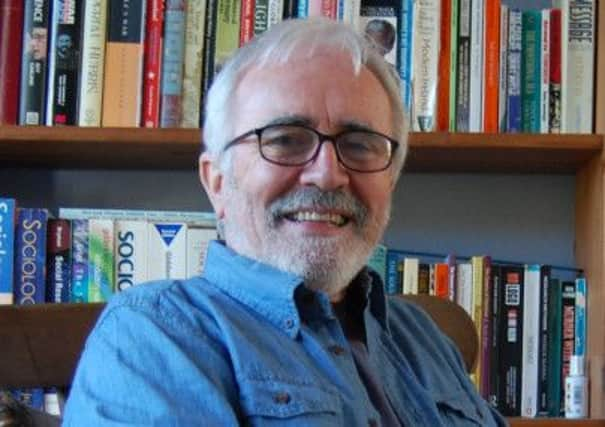Poverty and wealth are deserved


Families are falling apart; it is not at all unusual for a man and his wife to argue and treat each other with disdain as I seek to advise them, and there’s always a big box of tissues on my desk.
The most hurtful I think I have ever seen was when a man paraded his wife in front of him.
Advertisement
Hide AdAdvertisement
Hide AdHe forced her to sit in the corner while he pointed at her and called her names in an attempt show me how bad a woman she was.
The truth quickly emerged that it was he who had abdicated all responsibility for the family finances and being unable to meet his demands for a warm home and unlimited supplies of food and drink, she had turned to payday loan companies and plunged the family into serious debt.
It is against this background that I read a recent report from the four main churches in Scotland: ‘Lies We Tell Ourselves: ending comfortable myths about poverty.’ In the report is listed a number of what the authors call myths: Myth 1: ‘They are lazy and just don’t want to work, Myth 2: They are addicted to drink and drugs, Myth 3: They are not really poor - they just don’t manage their money properly, Myth 4: They are on the fiddle, Myth 5: They have an easy life on benefits.’
Now to say that none of the poor in our society is idle, none is addicted to alcohol and/or drugs, none is unable to budget, or on the fiddle or enjoy a life of ease on benefits at the expense of the rest of us who work and pay our taxes is as wrong as to turn away, salving our conscience by swallowing a convenient lie.
Advertisement
Hide AdAdvertisement
Hide AdIn 1753 John Wesley, the founder of Methodism said, ‘So wickedly, devilishly false is that common objection, ‘They are poor, only because they are idle’.
And yet is there another explanation why many churchgoers and members of the general public alike are happy to believe that poverty in the UK is the result of the personal failings of the poor?
Mrs Cecil Frances Alexander was a nineteenth century, Dublin-born poet and hymn writer. She was by all accounts a good and generous woman, involved as she was in charitable work for much of her long life.
Money from her first publications helped build the Derry and Raphoe Diocesan Institution for the Deaf and Dumb, which was founded in 1846 in Strabane. The profits from ‘Hymns for Little Children’ were also donated to this school.
Advertisement
Hide AdAdvertisement
Hide AdShe was involved with the Derry Home for Fallen Women, and worked to develop a district nurse’s service. She was a tireless visitor to poor and sick people, but her flawed theological position can be seen in one of her hymns for little children.
We love to sing, ‘All things bright and beautiful’, but there’s a verse that has been removed from our hymnbooks, and here it is: ‘The rich man in his castle, The poor man at his gate, God made them high and lowly, And ordered their estate.’
In other words, the big-hearted, philanthropist wife of the Archbishop of Armagh seems to have had no trouble believing that God has ordained that the rich are rich and the poor are poor.
And if that is so, while the rich can and perhaps should give a percentage of their largesse to those who are less fortunate, there is no great requirement to change the structure of society; that’s how God wants it to be.
Advertisement
Hide AdAdvertisement
Hide AdI can hear Paul the Apostle as he turns in his grave: ‘I am astonished that you are deserting the one who called you to live in the grace of Christ and are turning to a different gospel – which is really no gospel at all.’